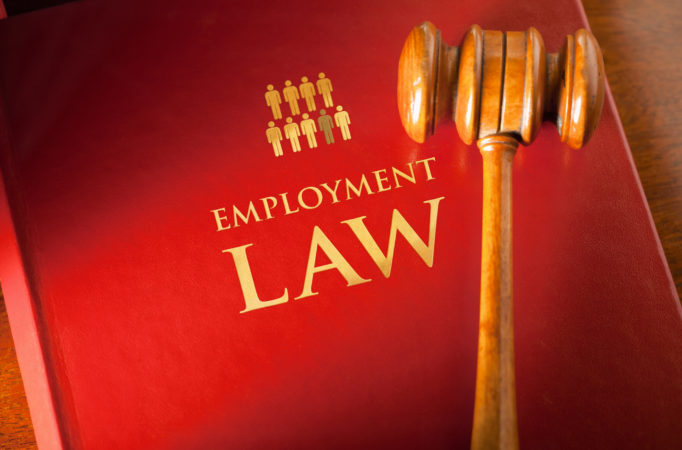Employment & Labor Law
Does Your Business Contract With the Federal Government? Here’s What You Need to Know About New COVID Vaccine Rules
Last week, the federal government issued new COVID vaccine rules that will apply to many federal contractors and subcontractors. These are the highlights:
Q: Will the new rules apply to my business?
A: These rules will apply to most contracts with federal agencies, but only if the contract value is greater than $250,000. Service contracts, construction contracts, and leases are included. The rules will also apply to subcontractors performing work for federal agencies.
Initially, the rules won’t apply to contracts (or subcontracts) where the only work is manufacturing or supplying products. But, the rules may expand to cover these types of contracts in the future.
Q: What is required?
A: There are three main requirements:
- Vaccine.By December 8, 2021, covered businesses will need to ensure that certain employees are fully vaccinated. This requirement applies to employees who work at a facility where the business does work in connection with a covered contract. This requirement even covers employees who work at facilities where the business does billing, human resources, or legal work in connection with the contract.
- Masks and Physical Distancing. Covered businesses will need to follow guidance on masks and physical distancing that is issued by the Centers for Disease Control.
- Workplace Safety Coordinator. Covered businesses will need to designate at least one person to coordinate COVID-19 workplace safety efforts.
Q: Are there any exceptions?
A: Yes, there are a few exceptions:
- These rules only apply to certain federal contracts (as we explained above).
- Employees who satisfy medical or religious exemptions don’t need to be vaccinated.
- Employees who work in the same facility where the business performs a federal contract, but who don’t work in connection with the contract, can avoid being vaccinated – but only if they are kept completely separate from employees who do work on the contract. This is a strict standard that will usually require all employees in the facility to be vaccinated. (To apply this exception, businesses would need to take the extreme step of creating separate lobbies, elevators, stairwells, and parking garages for employees who are not working in connection with the contract.)
Q: How does this fit in with the new OSHA rules?
A: You may have seen in the news that the federal Occupational Safety and Health Administration – which issues and enforces workplace safety rules – is also preparing COVID vaccine rules. But, there are a few key differences between the federal contractor rules and the upcoming OSHA rules:
- The federal contractor rules apply to businesses with any number of employees. The OSHA rules will only apply to businesses with at least 100 employees.
- The federal contractor rules require all covered employees to get vaccinated. Under the OSHA rules, employees can avoid getting vaccinated if they present negative test results each week.
- The federal contractor rules require businesses to verify that employees are fully vaccinated. For example, employees may present a copy of their vaccination card or their medical records. At this point, we don’t know whether the OSHA rules will require proof of vaccination.
- The federal contractor rules take effect on December 8, 2021. At this point, we are waiting for OSHA to issue its rules, so we don’t know when they will take effect.
Q: What should we do?
A: To prepare for the new rules, we recommend that you:
- Determine whether your business has a covered contract (or subcontract).
- If the rules apply to your business, identify the facilities where you work in connection with a covered contract, and which employees at those facilities will need to be vaccinated.
- Communicate with employees as early as possible, so they can plan to receive the last dose of their COVID vaccine by November 24, 2021 (two weeks before the December 8, 2021 deadline to become fully vaccinated).
- Look out for guidance from three federal agencies: the Safer Federal Workforce Task Force; the CDC; and OSHA.
For more information, here is a link to the full Guidance for Federal Contractors and Subcontractors:
https://www.saferfederalworkforce.gov/downloads/Draft%20contractor%20guidance%20doc_20210922.pdf
About Us
Claims and suits brought against employers by employees are a large part of the cases being handled by the Employment lawyers at Houston Harbaugh. We focus on assisting and counseling our clients to be positioned to avoid claims, and if the claims are brought, to be prepared to defend against them.

Craig M. Brooks - Practice Chair
An employment and labor attorney, Craig primarily represents management, providing advice on how to handle employee issues and actions, as well as defending or pursuing claims in court and before government agencies on matters.
An employment and labor attorney, Craig primarily represents management, providing advice on how to handle employee issues and actions, as well as defending or pursuing claims in court and before government agencies on matters including:
- Employment discrimination claims
- Wage and hour matters
- Sexual and other harassment investigations and claims
- Family and Medical Leave Act
- Wrongful discharge
- Labor/Union matters
- Restrictive covenants
- Affirmative action programs
- Defamation
- Privacy
Craig also represents individuals with advice and pursuing claims arising out of their employment.

